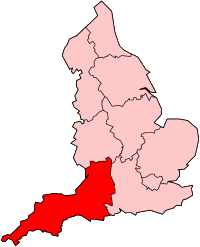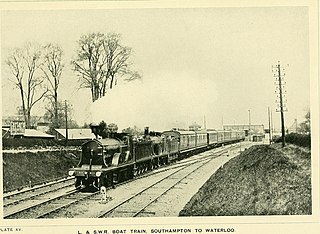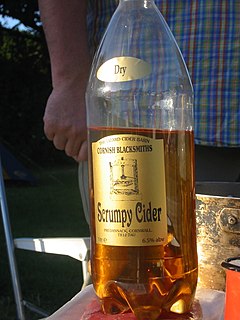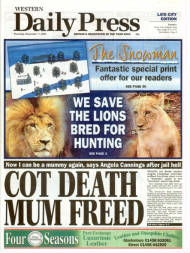 W
WThe West Country is a loosely defined area of south-western England. The term usually encompasses the historic counties of Cornwall, Devon, Dorset, and Somerset, and is often extended to include Wiltshire and Gloucestershire, in the South West region. Some definitions also include Herefordshire. The West Country is host to distinctive regional English dialects and accents as well as to the Cornish language.
 W
WSouth West England is one of nine official regions of England. It consists of the counties of Bristol, Cornwall, Dorset, Devon, Gloucestershire, Somerset and Wiltshire. Large cities and towns in the region include Bristol, Cheltenham, Exeter, Gloucester, Plymouth and Swindon. It is geographically the largest of the nine regions of England covering 9,200 square miles (23,800 km2),, but the third least-populous, with approximately five million residents.
 W
WThe Bristol Channel is a major inlet in the island of Great Britain, separating South Wales from Devon and Somerset in South West England. It extends from the lower estuary of the River Severn to the North Atlantic Ocean. It takes its name from the English city of Bristol, and is over 30 miles (50 km) wide at its western limit.
 W
WDevon is a county of England, reaching from the Bristol Channel in the north to the English Channel in the south. It is part of South West England, bounded by Cornwall to the west, Somerset to the north-east and Dorset to the east. The city of Exeter is the county town. The county includes the districts of East Devon, Mid Devon, North Devon, South Hams, Teignbridge, Torridge and West Devon. Plymouth and Torbay are each geographically part of Devon, but are administered as unitary authorities. Combined as a ceremonial county, Devon's area is 6,707 km2 and its population is about 1.1 million.
 W
WDumnonia is the Latinised name for the Brythonic kingdom in Sub-Roman Britain between the late 4th and late 8th centuries, in what is now the more westerly parts of South West England. It was centred in the area later called Devon, but included modern Cornwall and part of Somerset, with its eastern boundary changing over time as the gradual westward expansion of the neighbouring Anglo-Saxon kingdom of Wessex encroached on its territory. The spelling Damnonia is sometimes encountered, but that spelling is also used for the land of the Damnonii, later part of the Kingdom of Strathclyde, in what is today southern Scotland. Domnonia also occurs and shares a linguistic relationship with the Breton region of Domnonée, Breton: Domnonea.
 W
WThe Dumnonii or Dumnones were a British tribe who inhabited Dumnonia, the area now known as Devon and Cornwall in the further parts of the South West peninsula of Britain, from at least the Iron Age up to the early Saxon period. They were bordered to the east by the Durotriges tribe.
 W
WWest Country English is a group of English language varieties and accents used by much of the native population of South West England, the area sometimes popularly known as the West Country.
 W
WThe London and South Western Railway was a railway company in England from 1838 to 1922. Starting as the London and Southampton Railway, its network extended from London to Plymouth via Salisbury and Exeter, with branches to Ilfracombe and Padstow and via Southampton to Bournemouth and Weymouth. It also had many routes connecting towns in Hampshire and Berkshire, including Portsmouth and Reading. In the grouping of railways in 1923 the LSWR amalgamated with other railways to create the Southern Railway.
 W
WScrumpy is a type of cider originating in the West of England, particularly Cornwall, Devon, Bristol, Dorset, Somerset, Wiltshire, Warwickshire, Gloucestershire and Herefordshire. Traditionally, the dialect term "scrumpy" was used to refer to what was otherwise called "rough", a harsh cider made from unselected apples.
 W
WScrumpy and Western refers humorously to music from England's West Country that fuses comical folk-style songs, often full of double entendre, with affectionate parodies of more mainstream musical genres, all delivered in the local accent/dialect. The name, taken from the title of the 1967 Scrumpy & Western EP by Adge Cutler and the Wurzels, refers to scrumpy, strongly alcoholic cider produced in the West Country; it is a play on the American genre of country and western music.
 W
WSomerset is a county in South West England which borders Gloucestershire and Bristol to the north, Wiltshire to the east, Dorset to the south-east and Devon to the south-west. It is bounded to the north and west by the Severn Estuary and the Bristol Channel, its coastline facing southeastern Wales. Its traditional border with Gloucestershire is the River Avon. Somerset's county town is Taunton.
 W
WThe SR West Country and Battle of Britain classes, collectively known as Light Pacifics or informally as Spam Cans, are air-smoothed 4-6-2 Pacific steam locomotives designed for the Southern Railway by its Chief Mechanical Engineer Oliver Bulleid. Incorporating a number of new developments in British steam locomotive technology, they were amongst the first British designs to use welding in the construction process, and to use steel fireboxes, which meant that components could be more easily constructed under wartime austerity and post-war economy.
 W
WBelow are the names and numbers of the steam locomotives that comprised the Bulleid light pacifics, the West Country and Battle of Britain classes of locomotives that ran on the British Southern Railway network. They represented a publicity success for the Southern Railway, with the West Country class highlighting the names of places served by the Southern Railway, while the Battle of Britain locomotives constituted a roving memorial to the fighter pilots who fought during the Battle of Britain, and the actions of RAF Fighter Command as a whole. No. 34066 Spitfire and No. 34086 219 Squadron were at one point in time candidates for preservation, but No. 34023 Blackmoor Vale was chosen instead due to it being in better condition than No. 34066 and No. 34086.
 W
W21C127 Taw Valley is a Southern Railway West Country class 4-6-2 Pacific steam locomotive that has been preserved. It is presently operational at the Severn Valley Railway.
 W
WITV Westcountry, formerly known as Westcountry Television and Carlton Westcountry, was the ITV franchise holder for the south west of England, covering Cornwall, Devon, Isles of Scilly, southern and western Somerset and western Dorset. The company replaced its predecessor, TSW, from 1 January 1993. The station was owned and operated by ITV plc under the licensee of ITV Broadcasting Limited.
 W
WThe Western Daily Press is a regional newspaper covering parts of South West England, mainly Gloucestershire, Wiltshire and Somerset as well as the metropolitan areas of Bath and North East Somerset and the Bristol area. It is published Monday to Saturday in Bristol, UK. The majority of its readers are in rural areas, small towns and villages throughout the region and the paper's coverage of rural, agricultural and countryside issues is particularly strong. It also has a good record in picking up quirky and bizarre stories which would otherwise not be publicised. Politically it tends to be conservative although its coverage of the UK ban on fox hunting was neutral, recognising that even in rural areas people are very divided on the issue.